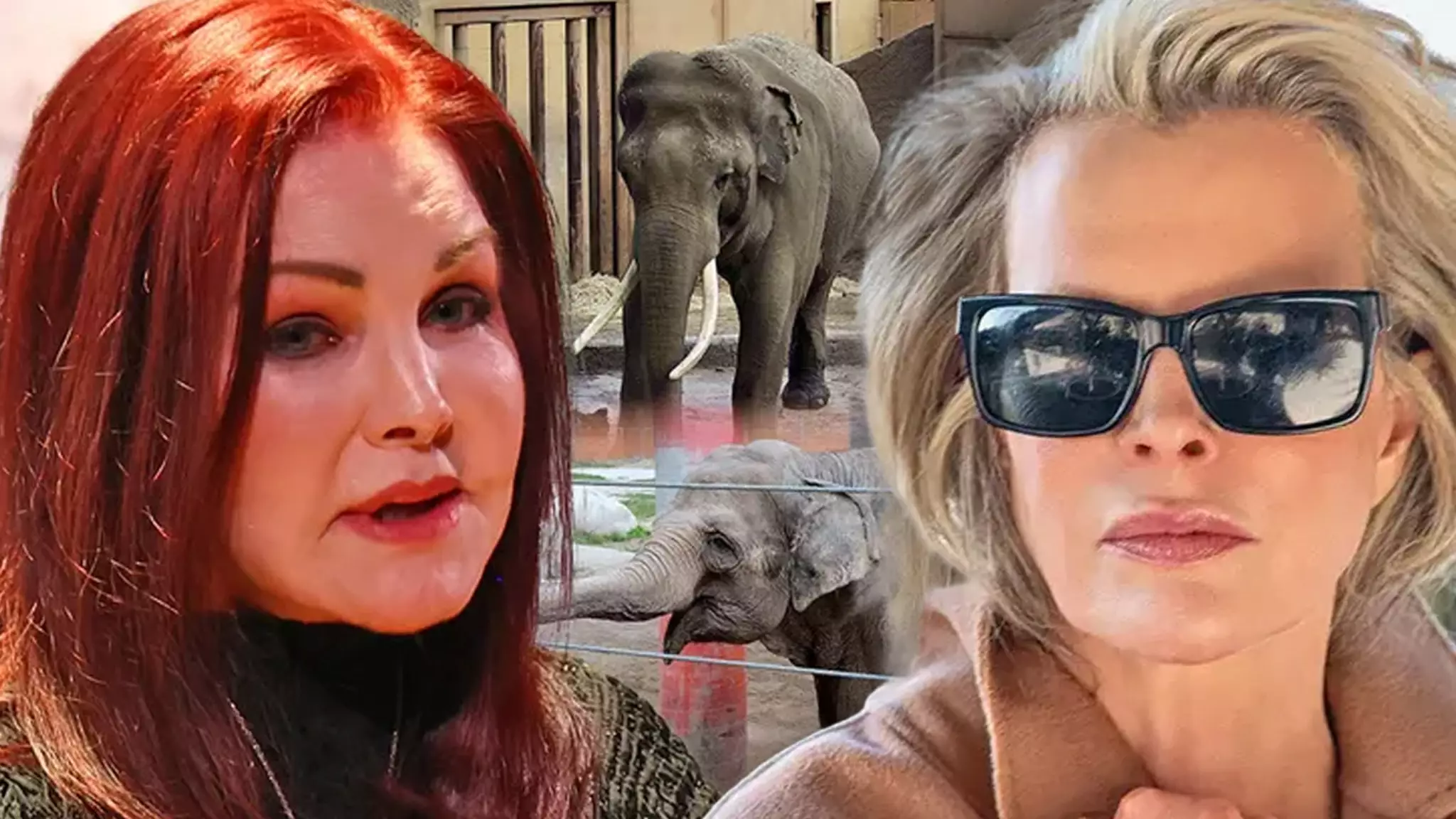In a move that has sparked severe backlash from animal rights activists and Hollywood celebrities alike, the Los Angeles Zoo transferred its two remaining Asian elephants, Tina and Billy, to the Tulsa Zoo under the cover of darkness. This decision, perceived as an act of cowardice, reflects a broader issue regarding the treatment of captive animals in urban settings. Priscilla Presley and Kim Basinger are among the prominent figures expressing their indignation, calling the transfer “cruel” and a betrayal of the animals’ rights. The incident accentuates the moral dilemmas surrounding the custody of such majestic creatures, revealing a troubling disconnect between administrative choices and humane ethics.
Voices for the Voiceless
Priscilla Presley, a longstanding advocate for animal rights, encapsulated the sentiment of many when she labeled the transfer “devastating.” Her activism spans nearly a decade, emphasizing that animals like Tina and Billy deserve more than mere confinement—they deserve freedom. Presley’s commitment to the cause illustrates the necessity for relentless advocacy in a landscape where decisions about vulnerable lives are often made expediently. Similarly, Basinger has targeted Los Angeles Mayor Karen Bass with fierce criticism for allowing the transfer despite ongoing lawsuits challenging the legality of such a move. Basinger’s impassioned plea pointed out that relocating the elephants to a sanctuary should have been an obvious choice, potentially elevating the spirits of the Los Angeles community while providing a proper home for Tina and Billy.
The Dismal Reality of Zoos
The L.A. Zoo’s justification for the transfer—grounded in a so-called “comprehensive evaluation” of potential options—falls flat against the mounting evidence and emotional argument for animal sanctuaries. The harsh reality is that zoos often prioritize their operational frameworks over the well-being of their inhabitants. By moving Tina and Billy to another zoo rather than a sanctuary, the L.A. Zoo has highlighted recurrent systemic issues in how institutions handle the lives of captive beings. Basinger poignantly articulated the sheer inhumanity of keeping elephants in captivity; “captivity and chains should never define the existence of these animals.” Her statements carry a weight that resonates deeply with anyone who understands the complexities of animal welfare.
Celebrity Influence and Social Responsibility
The outrage expressed by celebrities like Cher, Alicia Silverstone, and Diane Warren illustrates the heightened awareness surrounding animal rights in popular culture. Their collective voice, alongside Basinger and Presley, serves as a vital beacon for social responsibility, pushing the narrative of justice for animals into mainstream conversations. However, while celebrity involvement can draw significant attention, it also raises questions about whose voices are heard in animal advocacy. Are celebrity activists being listened to out of genuine concern for the animals, or are they being utilized as marketing tools for various causes? The need for grassroots movements that address these concerns remains urgent, as the disenfranchised voices of the animals themselves continue to be ignored.
The Future of Animal Welfare in Urban Ecosystems
As the backlash against the L.A. Zoo’s decision continues to grow, the focus shifts to the future of animal welfare in urban environments. Advocates like Presley and Basinger are not merely voicing their outrage; they are calling for systemic change that prevents situations like this from happening again. Proposals for ordinances that restrict the keeping of elephants in captivity in Los Angeles County are gaining traction. This reflects a larger conversation about how we perceive and interact with wildlife within urban frameworks. It is critical to push the narrative that sanctuary living is a right, not a privilege, for these majestic creatures.
The case of Tina and Billy is not just a story of two elephants but a mirror reflecting society’s relationship with the natural world. As awareness grows, the pressure mounts on institutions like the L.A. Zoo to adapt to a more humane approach to animal care. With advocates willing to fight the status quo, the future could potentially usher in a new era of compassion, empathy, and responsibility towards our fellow beings.

